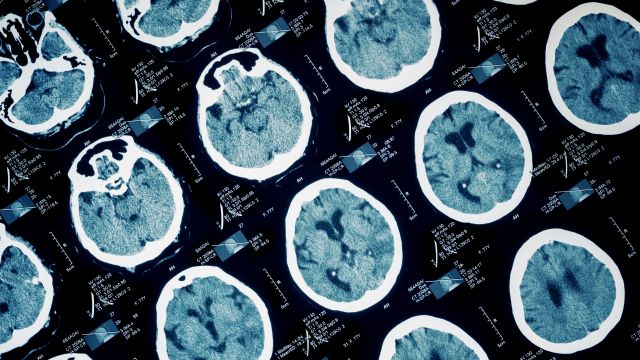Traumatic brain injuries (TBIs) are one of the major causes of death in the United States, as well as a big reason for many emergency room visits and hospitalizations. In 2013, the most recent year for which data is available, an estimated 2.8 million Americans sustained one.
Despite their prevalence, researchers are still trying to understand the long-term effects of these injuries, including their link to dementia. Studies suggest TBIs contribute to your risk of developing the condition.
What is a traumatic brain injury?
A TBI occurs when an impact to the head is severe enough to affect regular brain function. They are broken down into three groups: mild, moderate and severe.
Mild TBIs, typically known as concussions, are the most common, and are categorized by unconsciousness that lasts 30 minutes or less. Those experiencing moderate TBIs remain unconscious more than 30 minutes, while people with severe TBIs usually lose consciousness for over 24 hours.
Besides loss of consciousness, symptoms of a TBI include:
- Difficulty thinking clearly
- Feeling dizzy or nauseous
- Inability to concentrate
- Memory loss
In severe cases, emotional functioning or mobility may be affected. Regardless of the severity and symptoms, new research is finding that even mild brain injuries can have longer-lasting concerns.
The connection: TBIs and dementia
Many experts believe TBIs contribute to the odds of developing dementia, and one 2018 study found that dementia risk increased 25 percent after sustaining one.
To reach their conclusions, researchers from Ume å University in Sweden looked at the medical histories of more than three million Swedes, aged 50 and older, who were either diagnosed with a TBI, dementia or both. The risk was found to be strongest in the year following an injury but still present up to 30 years later. Mild TBI’s showed a weaker link to dementia than moderate or severe head injuries.
It’s important to note that the study couldn’t conclusively prove that TBIs cause dementia. “The exact mechanism how TBI increases the risk of developing dementia of all causes is not clear and currently being investigated,” says neurologist Peter Gliebus, MD, the Director of the Memory and Cognitive Disorder Center at the Drexel Neurosciences Institute, also a neurologist at Our Lady of Lourdes Medical Center in Cherry Hill, New Jersey. Even though they were able to establish a link, more studies need to be done to determine if there is a cause and effect.
Who’s at risk for a brain injury?
The leading causes of TBIs are falls, car accidents and being struck by or against an object. They most often occur in the elderly, but a head injury can happen at any age.
Athletes who play contact sports are at heightened risk, as are cyclists, snowboarders, skiers, inline skaters and others who participate in activities that pose a higher injury threat. Boxers, football players and soccer players tend to be singled out when discussing long-term TBI risk because their injuries have been studied most often. “We have data available from studies that followed athletes, though brain injury acquired during any other activity most likely has the same consequences," says Dr. Gliebus. “Scientists have already started looking into other patient groups.”
Young athletes are being diagnosed with TBIs more frequently, too. According to the Centers for Disease Control and Prevention, emergency room visits for sports concussions or TBIs in children doubled between 2001 and 2012.
Ways to prevent TBIs
To reduce your risk of head injury, and perhaps, your odds of developing dementia down the line, take these precautionary steps:
- When playing sports, always wear a helmet and other proper safety equipment.
- Wear a seatbelt every time you are in a moving vehicle and place children in age- and size-appropriate car seats or booster seats.
- Since the very young and the elderly are prone to head injuries, ensure that their home environment is safe and free of clutter.
While there is no way to prevent dementia entirely, making certain lifestyle changes may also lower your odds of developing the condition. “Any person, with or without TBI should adhere to healthy lifestyle that was demonstrated to decrease the risk or delay the onset of cognitive decline," notes Gliebus.
Those worried about the risk of dementia should follow general guidelines:
- Live an active lifestyle that includes a healthy diet and moderate exercise.
- Maintain social connections.
- Keep blood pressure, diabetes and cholesterol in check.
Finally, if you do sustain a TBI, it’s important to protect yourself against getting another one, as that may further increase the risk of dementia.






